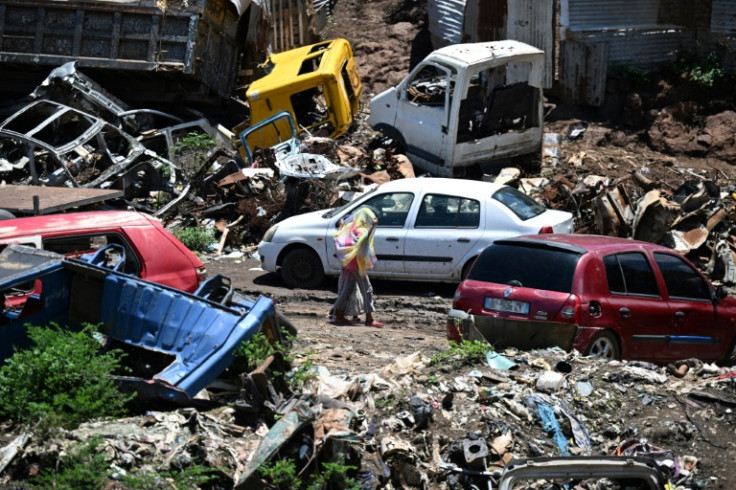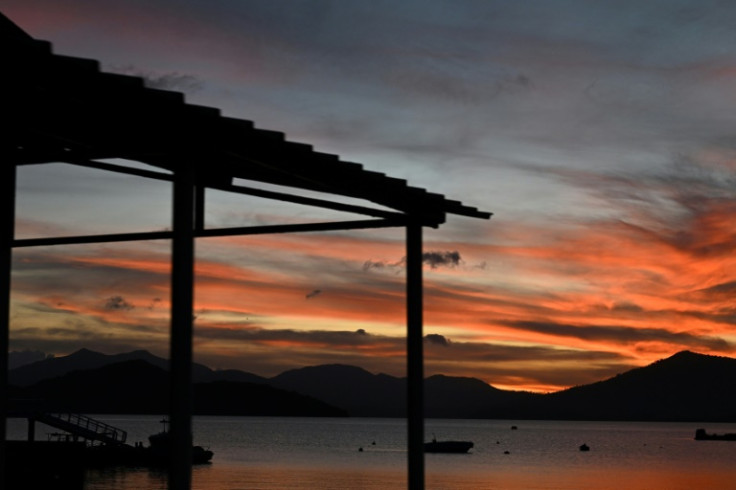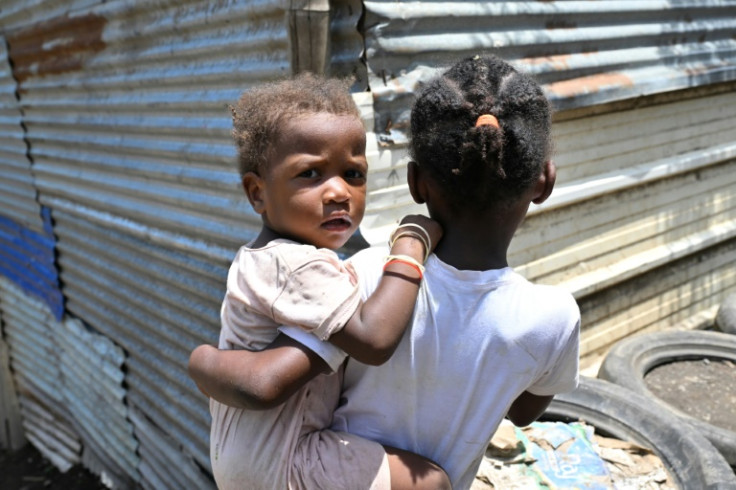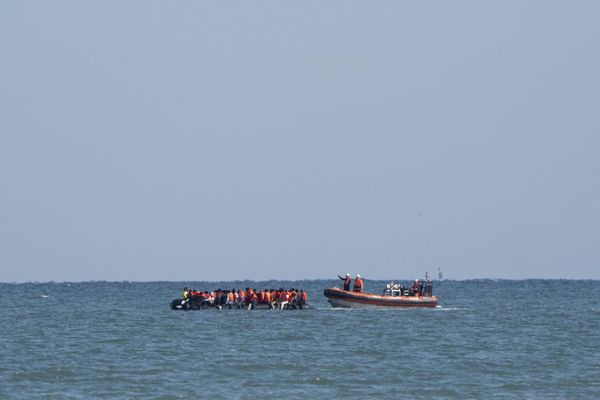
French authorities on Sunday announced a controversial plan to amend the Constitution to revoke birthplace citizenship on the French Indian Ocean island of Mayotte, which has been struggling with social unrest and a crippling migration crisis.
France currently grants citizenship through both bloodline and birthplace, and this proposal risks further ramping up tensions in France following the adoption of a tough new immigration law.
While the left denounced the fresh plan as another attack on French values, some local campaigners in Mayotte welcomed it, and political leaders on the right and the far right quickly suggested it be applied across the whole of France.
The reform was announced by Interior Minister Gerald Darmanin on Sunday after he arrived on the island, the country's poorest department, following three weeks of protests there.
In Mayotte's capital Mamoudzou, several hundred protesters greeted Darmanin and his entourage with boos and shouts of "Mayotte is angry".
Mayotte is composed of two islands that voted to stay part of France in 1973. The others in the surrounding Muslim-majority archipelago sought independence, becoming the Comoros Islands.
"We are going to take a radical decision," Darmanin said.
"It will no longer be possible to become French if you are not the child of a French parent," he said. The measure would reduce "the attractiveness" of the archipelago for prospective immigrants, he said.
"It is an extremely strong, clear, radical measure, which obviously will be limited to the Mayotte archipelago," said Darmanin.
Boris Vallaud, head of the Socialists in the National Assembly, said they would oppose the revision of the constitution. "Birthright citizenship is not negotiable," he told broadcaster France 3.
Manon Aubry of the far-left France Unbowed (LFI) party denounced the decision.
French President Emmanuel Macron's administration was "attacking the very concept of nationality, the foundation of the Republic", she wrote on X, formerly Twitter.
French campaign group SOS Racisme also denounced what it called "a particularly spectacular calling into question of the principle of equality".
Centrist MP Aurelien Tache told BFMTV that "if this provision is enacted and if Marine Le Pen then comes to power, it will be the end of birthright citizenship in France".
But Eric Ciotti, leader of the right-wing Republicans party, welcomed Darmanin's proposed reform -- but complained it did not go far enough.
"What is happening in Mayotte risks hitting mainland France tomorrow," he posted on X, formerly Twitter. The measure should be applied across the whole of French territory, he added.
Sebastien Chenu, spokesman for Le Pen's far-right National Rally took a similar line.
"A lot of time has been wasted coming to this conclusion that abolishing the right of the soil, not only in Mayotte but everywhere in France, is not only necessary but possible," he told Europe 1 radio. That could be achieved with a referendum and a revision of the constitution, Chenu added.
Le Pen's niece, Marion Marechal of the far-right "Reconquete" group also welcomed the announcement.
"Bravo for finally recognising evidence which should have been put on the table for more than ten years now," she said on broadcaster BFMTV. She too argued that the measure could be extended across all of France.
Mayotte, which lies northwest of Madagascar, became a full-fledged French department in 2011.
Thousands of Comorans fleeing poverty and corruption make the trip across to Mayotte every year in search of higher living standards.
The influx has caused major tensions, with many locals on Mayotte complaining about crime and poverty. There have been weeks of protest against insecurity and the migration crisis. A months-long water crisis has exacerbated tensions.
According to France's National Institute of Statistics and Economic Studies (INSEE), the 375-square kilometre island is home to around 310,000 people, but officials say this figure is seriously underestimated.
More than 40 percent of the islanders survive on less than 160 euros per month, says INSEE. Nearly half of island residents do not have French nationality.
Residence permits issued to foreigners in Mayotte are only valid for the island and cannot be used to travel to mainland France. The scrapping of that system is one of the key demands of the protesters.
Darmanin said the authorities would abolish the measure as part of the reform, which some protesters welcomed.
France grants citizenship through both bloodline and birthplace, although "jus soli" legislation has been massively tightened over the years.
In December, the French parliament passed a tough immigration bill adopted under pressure from the right.
In January, France's top constitutional authority censured contentious additions made on the insistence of the right.
bur-cw/jj/gv








